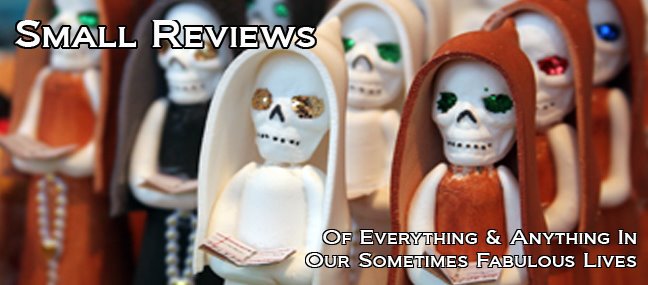 My friend Carlea has been watching all of AFI's top 100 films, and while I was searching for something vaguely productive to do while it was raining yesterday evening, I took a bit of inspiration from her, and decided that I'd try to watch at least a few of the most famous ones on the list. Particularly the ones that are available instantly on NetFlix.
My friend Carlea has been watching all of AFI's top 100 films, and while I was searching for something vaguely productive to do while it was raining yesterday evening, I took a bit of inspiration from her, and decided that I'd try to watch at least a few of the most famous ones on the list. Particularly the ones that are available instantly on NetFlix.So, we come to Guess Whos Coming to Dinner (#99), a film about an interracial couple who announce their wedding plans to their parents, none of whom are too terribly pleased to hear it. I'm not sure I can do a really complete review of this film, but I'd like to bulletpoint a few of my thoughts on it, and I hope you'll leave some comments with your thoughts on the film, also, so we can get something a little more cohesive together.
- Katharine Hepburn is pretty much the most amazing woman on the planet. She's just so great. Her costumes in this are fantastic, and she has such a command over the film. Spencer Tracy is also charming.
- Working for a newspaper and an art gallery used to be way more glamorous than it is now.
- If these were my kids, I'd be much more concerned about their decision to get married after knowing each other for two weeks than the color of their skin. I definitely get the sense that they don't really know each other, and I think knowing someone is a pretty big qualification for getting married. Although, things seem to have been different in the late 60s and early 70s. My parents moved in together after only knowing each other for a week, and 30 years later, they're still together.
- Sidney Poitier is almost as beautiful as Katharine Hepburn, and better at conveying emotion. He withholds something very powerful in this film and you can see it nearly brimming from him.
- I was fascinated by the way racism is portrayed in this film as so completely obvious and so completely latent. However, I wonder if it doesn't perpetuate racism somehow by silencing two of the black characters who disapprove of the marriage, instead of allowing them a change-of-heart in the way that Joey's parents are allowed one. I'm not sure how far I can go with that, but I found it noteworthy.
- I believe the film would have been vastly improved by cutting Joey's father's speech at the end by about 10 minutes. If he'd analyzed his own personal racism, and then given his approval, I think it would have been much more effective than giving a plot summary and then his approval.

No comments:
Post a Comment